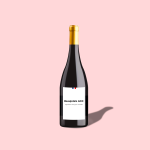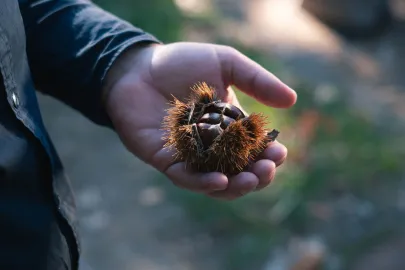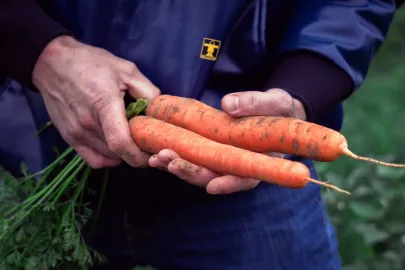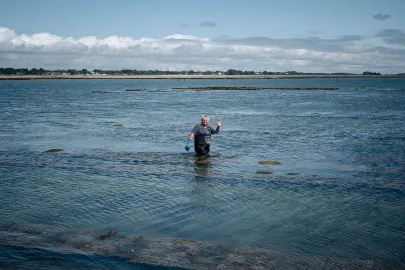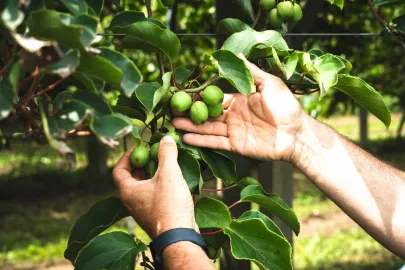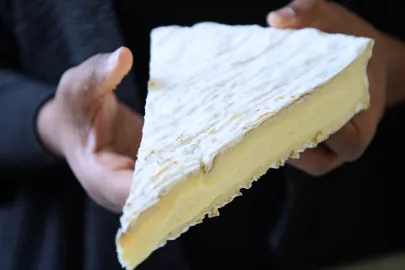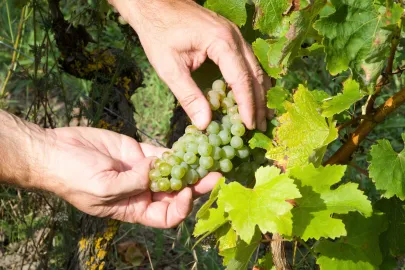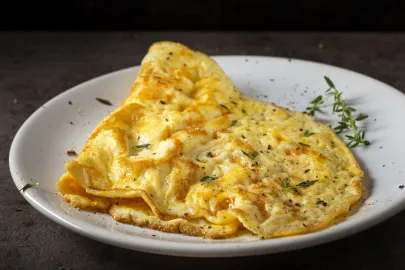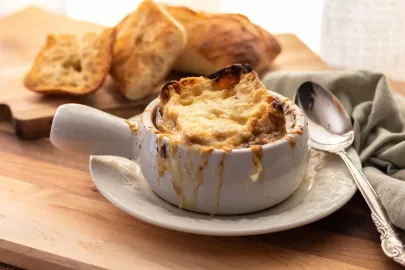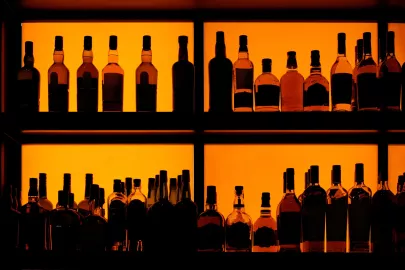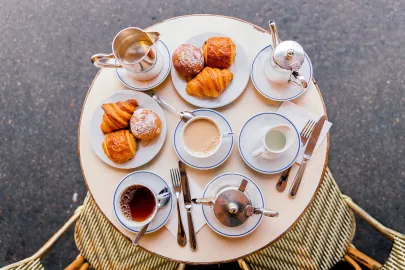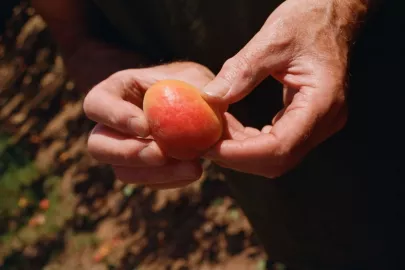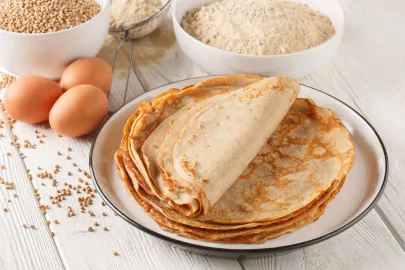Perched on his elevated terroir, we meet with a winemaker who has spent his whole career growing his practice. Today, he takes a positive, confident view of the vineyard’s future. Join us as we unveil the secrets of an iconic French wine: Beaujolais.
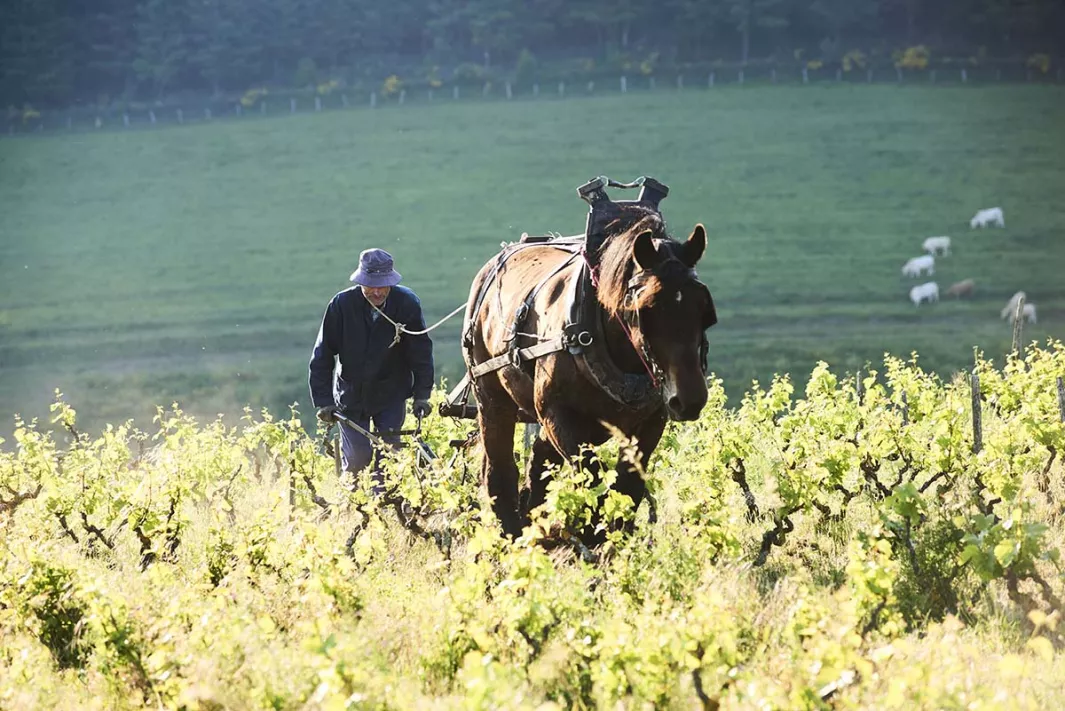
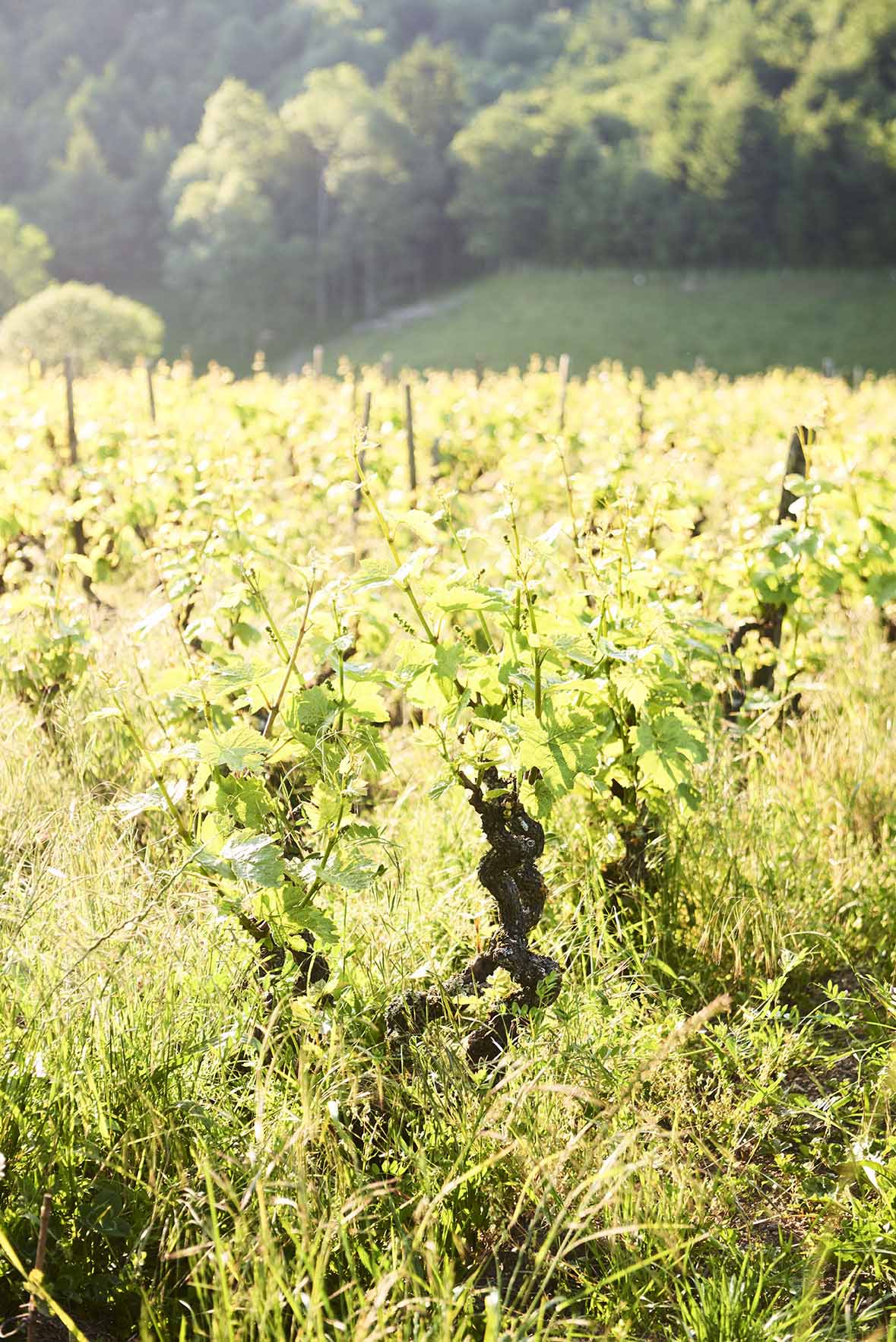
© Louis-Laurent Grandadam
Welcome to the hamlet of Faudon, in the commune of Vauxrenard… For our meeting with Michel Guignier, we leave the main roads behind and climb the Beaujolais hills, 500 meters up, between Mâcon and Lyon. The panoramic view of the surrounding area is magnificent. The place itself is as pretty as a picture. Imagine: a few houses, a vegetable garden, a path leading to vines planted in the curves of a plump hill and round about, forests of hardwoods and softwoods. The family property, once completely dedicated to polyculture, is adjacent to some thirty hectares (74 acres) of land, four of them planted with vines tended by Michel.
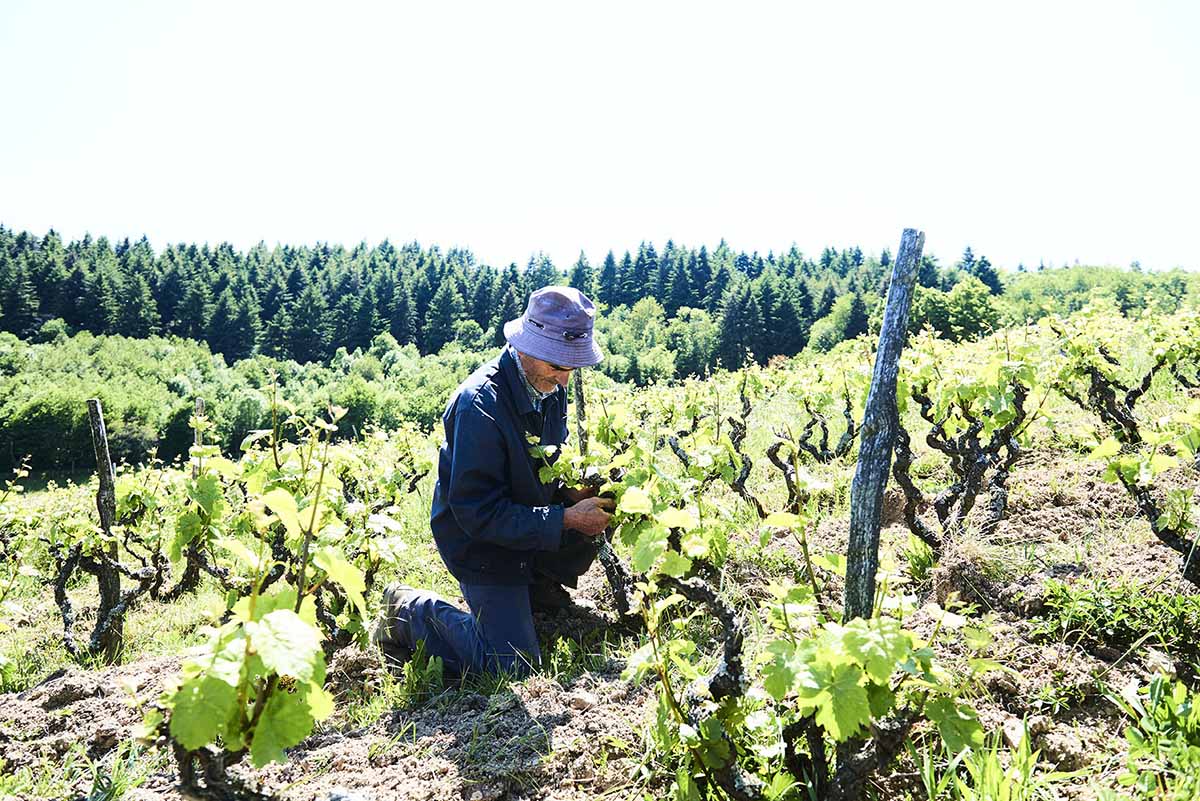
© Louis-Laurent Grandadam
From conventional to organic
At the age of 63, after forty years in the Beaujolais region, Michel has seen it all. To begin with, like many others, he went the conventional route. “At the time, I had only been taught the chemical approach, so I just pressed ahead with that… In the 90s, I started to question things, especially the use of glyphosate, which was gradually being recognized as highly polluting. There came a point when I said to myself it was impossible to carry on that way”.
In 2000, he made the switch to organic, then immediately tried biodynamics. In this respect, his journey is quite typical of the evolution that has taken place in the Beaujolais vineyard, where increasing numbers of winemakers have gradually moved away from traditional viticulture.
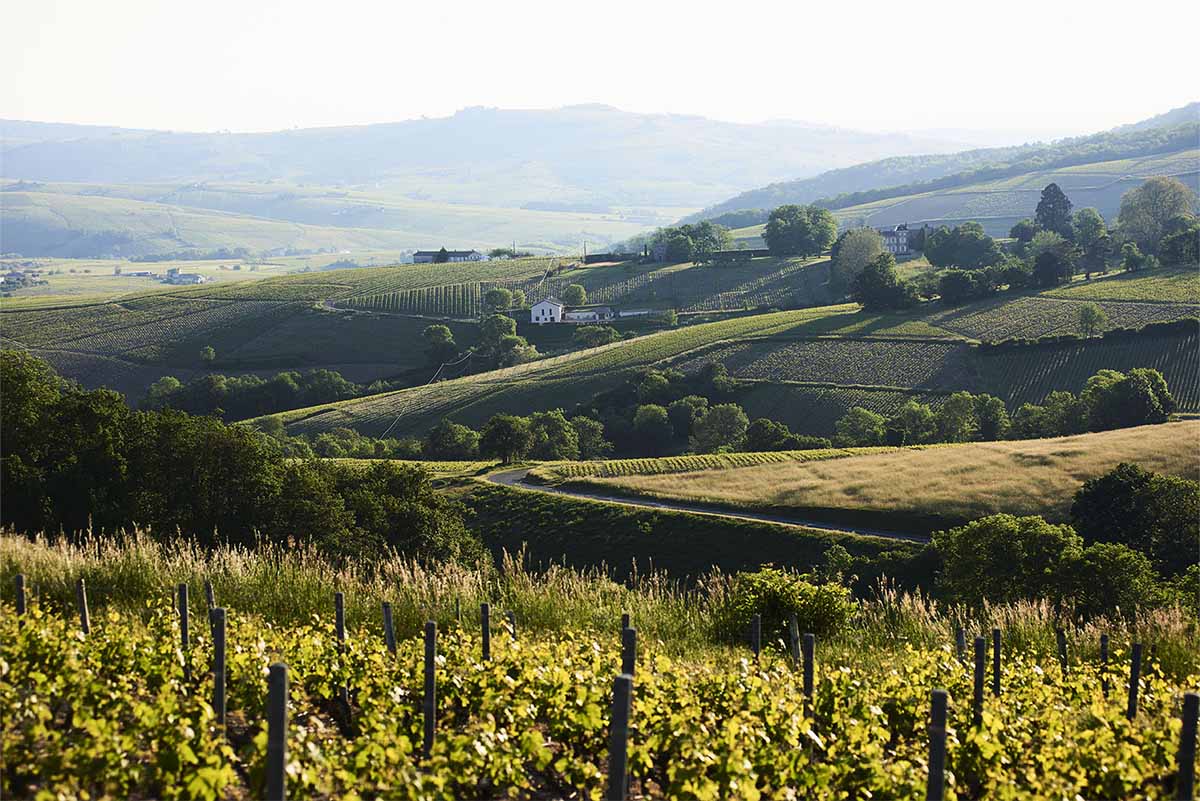
© Louis-Laurent Grandadam
Virtuous practices
Michel loves being surrounded by the woods, a source of precious biodiversity. His co-worker is Bister, a sturdy horse, originally from the Belgian Ardennes. Michel has been working the vines with his trusty partner for twenty years, although like many others, he has eased up on tillage to avoid damaging the soil. From his lofty geographical position, he is optimistic about the vineyard: “There is a certain momentum, things are moving in the right direction. And because the land is cheaper than elsewhere, new winemakers are settling here”. Michel prefers to describe his own wines as “pure juice” rather than “natural wines”.
And he takes the definition of terroir to extremes in the precise way in which he works his own plot of land: “the degree of decomposition of the granite in the soil varies from one plot of land to the next, producing differences in the wines and variations in the expression of the Gamay. But what I look for above all in my wine is fluidity, the thirst-quenching aspect”. Which is very much in keeping with the current movement, in Beaujolais and elsewhere, towards balance and freshness rather than strength and showiness.
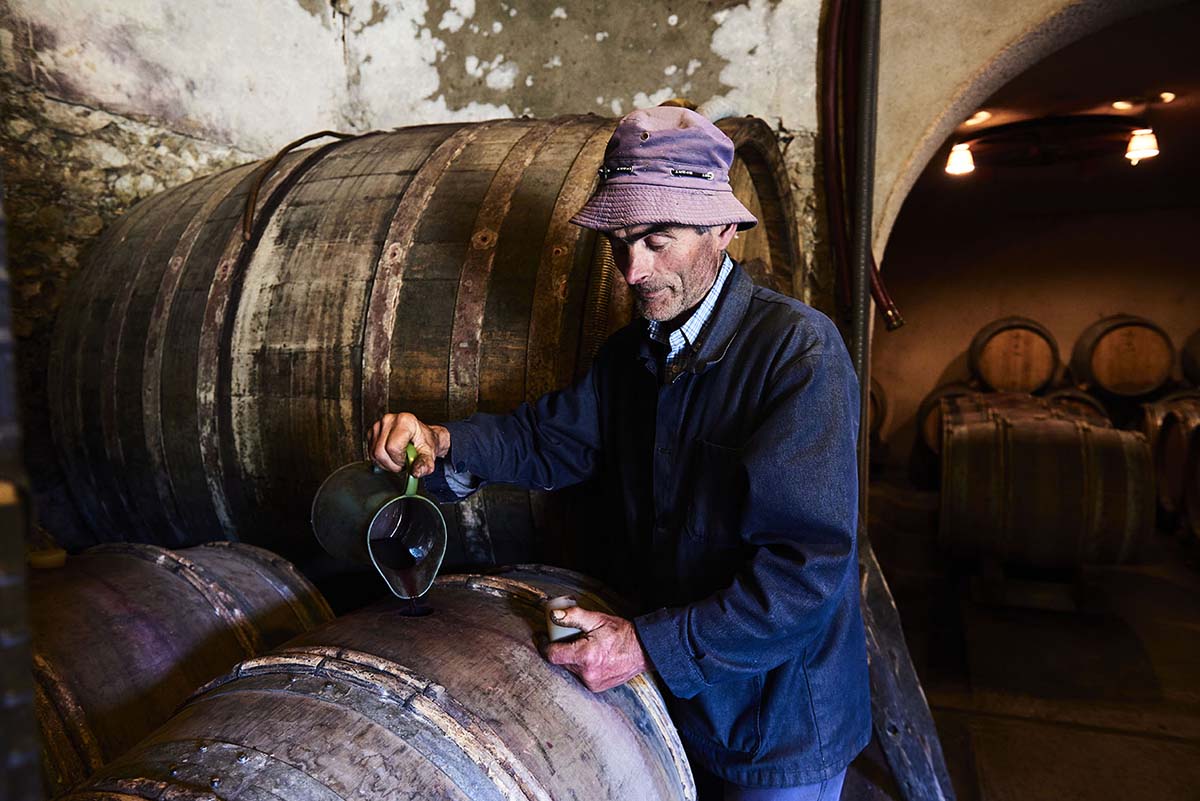
© Louis-Laurent Grandadam
Taste France Magazine’s selection
Beaujolais Villages - “La Bonne Pioche” 2019
Aromas of small red fruit, delicate tannins, depth but also great “drinkability” - such are the characteristics of this wine produced on a hard, stony granite terroir.
Vin de France – “Granite” 2019
Tension, freshness, and vivacity define this wine with an aromatic range dominated by delicate floral notes. Thirst-quenching indeed!
Contributor

Editor

